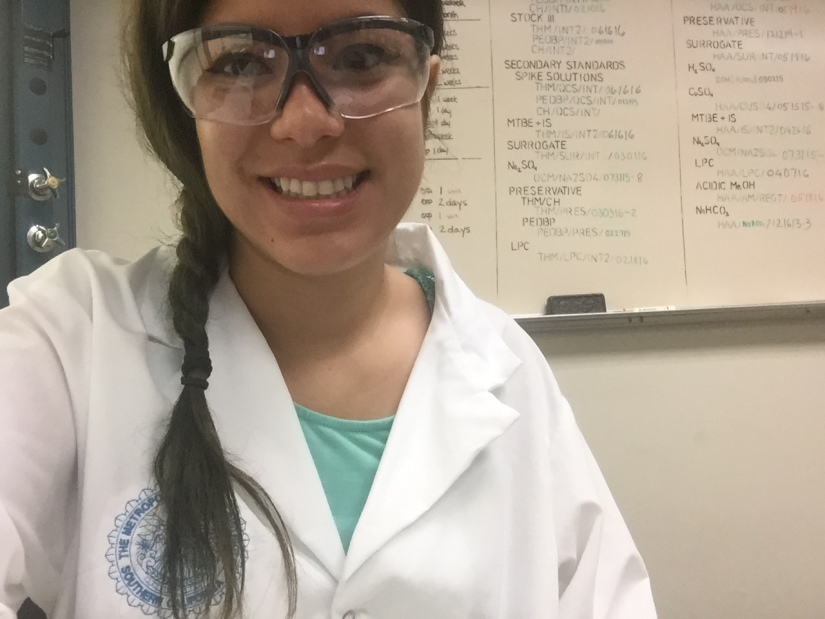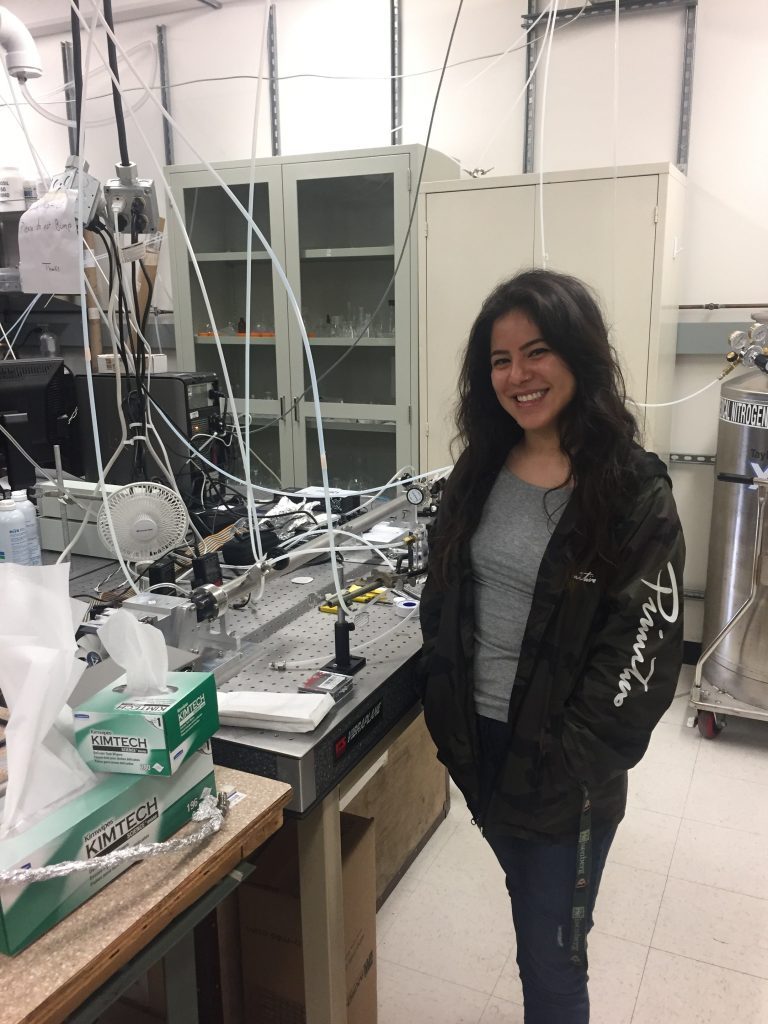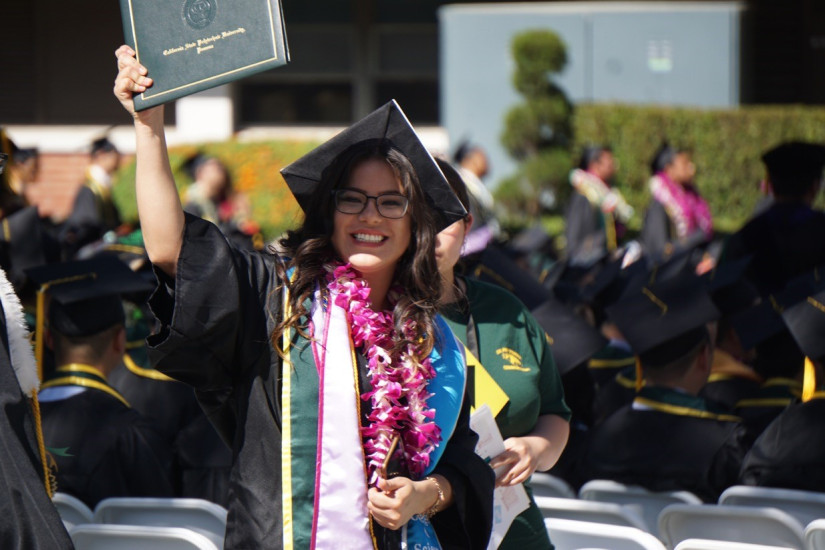Written By: Stephanie Mora Garcia, PhD Candidate @ UCSD
Today my identity includes many aspects of which I am proud; and at the top of the list is inquisitive scientist.
However, this was not always the case.
When I turned 16, I began to identify mostly as an undocumented girl who belonged to an underrepresented group who also happened to be in a low -income community and I did not feel good about it. Now, although those things are still a part of my identity, they are just one part and I’ve realized that I cannot be defined by any one aspect of my identity.

I am currently in a prestigious graduate program where I study cutting-edge science and this experience is beyond fulfilling, but getting here was not easy.
Applying to undergraduate institutions was the first time I experienced extra difficulty doing things that my classmates were doing. The process had an added level of difficulty as the portal for the financial side of things for undocumented students was different than that of my classmates which made asking questions to those around me not an option. Though the teachers tried to help me, they also had not seen the portal before and so I felt isolated in the process.
This trend of uncertainty and feeling like I was alone in the application processes continued when I was applying to PhD.
The rarity of people with my situation applying to graduate school was made apparent when the professors that I asked for help for had no answers for me. When I called the prospective institutions asking for clarification for my exact case they had to transfer me to 5+ people to finally get an answer, and even when I picked a school and began the paperwork, nobody seemed to know how processing my payments would work.
Another part of this process that was made more difficult because of my undocumented status was talking about funding with the Principal Investigators (PIs). I had to let them know that if they did not have funding for me already, I would have to work as a Teaching Assistant through the entirety of my program as I am not eligible to apply to most grants. Although all PIs were willing to have this conversation openly with me, it was stressful because I never knew how they would receive the information.
Having to navigate through higher education being undocumented has been difficult but it has not been the only source of hardships.

Being a Hispanic woman in science and coming from a low-income background has shaped the experiences that I have had in college and graduate school.
When I got to my undergraduate institution, I began my first quarter in calculus 1 as most science majors do. I had heard from teachers that the course would be difficult, but I had no experience with it because calculus was not offered at my high school. I am not sure if it wasn’t offered because of budget constraints or other reasons, but prior to beginning college I was not aware that the education I was receiving was at a lower level than most people who would begin college at the same time as me.
This difference in pre-college education ended up playing a large role in my experience in higher education.
Going back to that calculus class, I remember sitting in class learning about derivatives for the first time and being beyond confused; my classmates were all participating in discussions and I was struggling to understand what was said 10 minutes prior. This trend continued when I took my first robotics, coding, and physics courses.
I remember thinking that I was the problem and that I was not cut out for a career in STEM.
I would like to say that I got over this mentality two years into college, but in reality, I still have to remind myself that I have not had the same opportunities as my peers and colleagues. As you can imagine, this has led to a constant battle with imposter syndrome. To add to this, being a first-generation college student and a Hispanic woman also contributed to having reservations on my potential as a scientist.
It is great to know that women in science are beginning to be more represented but that is not the case for women of color in science. In my studies as an undergraduate, I only had one female chemistry professor and one person of color as a professor – a man.

All my professors were great and tried to encourage chemistry majors to pursue a graduate degree, but I was never really inspired when they tried to use their personal stories as motivational points. It is difficult to envision yourself having the same successful end when it seems like nobody in your position has been able to do so before.
Luckily, I had a professor at my undergraduate institution who not only saw my love for science, but more importantly, listened when I recounted the experiences that had brought my confidence down and when I expressed my worries with regards to applying to graduate school.
Through these conversations I began to feel like my professor believed that I would do well in graduate school which was vital in how I saw my own potential to succeed. I also realized that I would not be able to change my past experiences but that they did not have to define my experiences going forward. I became aware that my potential and drive to do well in graduate school is up to me and part of what has helped my journey is seeing things in a brighter light.

In hindsight, navigating through higher education being undocumented has only made me grateful for the people who have helped me and it has given me the desire to help students who may be experiencing any sort of similar disadvantages.
I am beyond grateful for the professor who helped me with the process of applying to graduate school as he also helped me gain confidence as a scientist.
It was in conversations with him when I realized my identity sounds more like a curious scientist who also happens to have experienced disadvantages due to factors out of her control. I have also found that if I seek help from individuals, most are more than willing to help.
Also, now that I am past a lot of the harder times, I see myself as a resource that younger students can use to make their experience a little better.
I have helped my sister, cousins, children of my parent’s coworkers, mentees that I have been appointed through university resource centers, and friends of friends; all of whom are struggling with similar barriers to what I have experienced in the last 8 years.
I do this because I want them to have a successful future; I want them to identify as future scientists, doctors, lawyers, and other professionals who also happen to have had to manage other identifiers in their pursuit of higher education.
Any opinions, findings, and conclusions or recommendations expressed in this material are those of the author(s) and do not necessarily reflect the views of the National Science Foundation (NSF).

